Books I Enjoyed in 2023
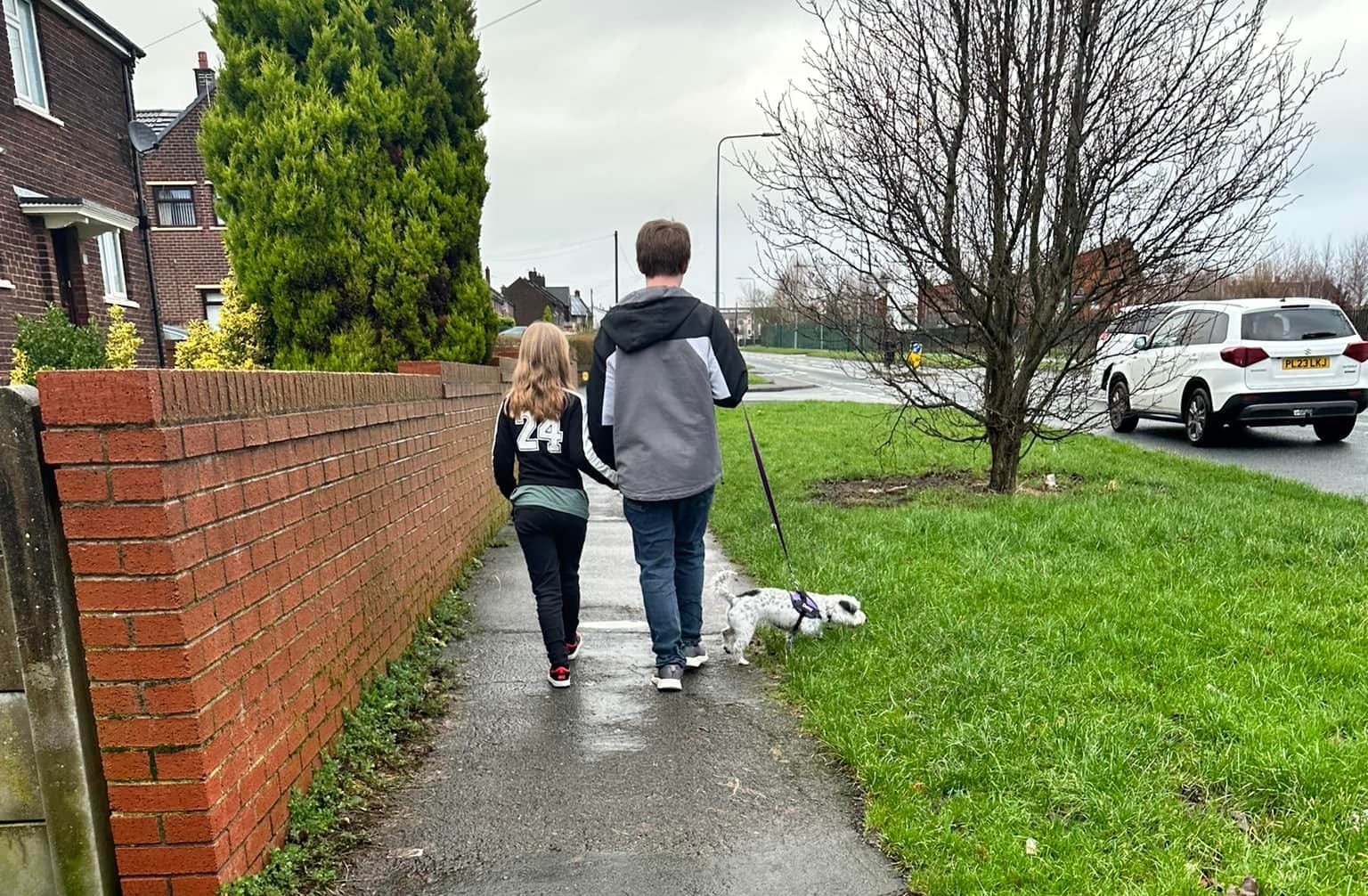
In 2023, my reading journey has been as diverse in content as it has been in format. While I cherish the feel of physical books, most of my reading has been through audiobooks. This habit fits seamlessly into my daily life, allowing me to absorb new ideas and stories while driving or during leisurely walks with my dog, Daisy. Each book, whether heard or read, has opened new windows of thought, enriching both my personal perspectives and professional knowledge.
Tech and Career Development

My reading in 2023 has been particularly focused on enhancing my understanding and skills in technology and career development. These books have not only enriched my technical knowledge but have also provided fresh insights into the broader aspects of my role as a Senior Engineer. Each title has offered unique perspectives and practical strategies, contributing significantly to my professional evolution.
Algorithms to Live By by Brian Christian and Tom Griffiths
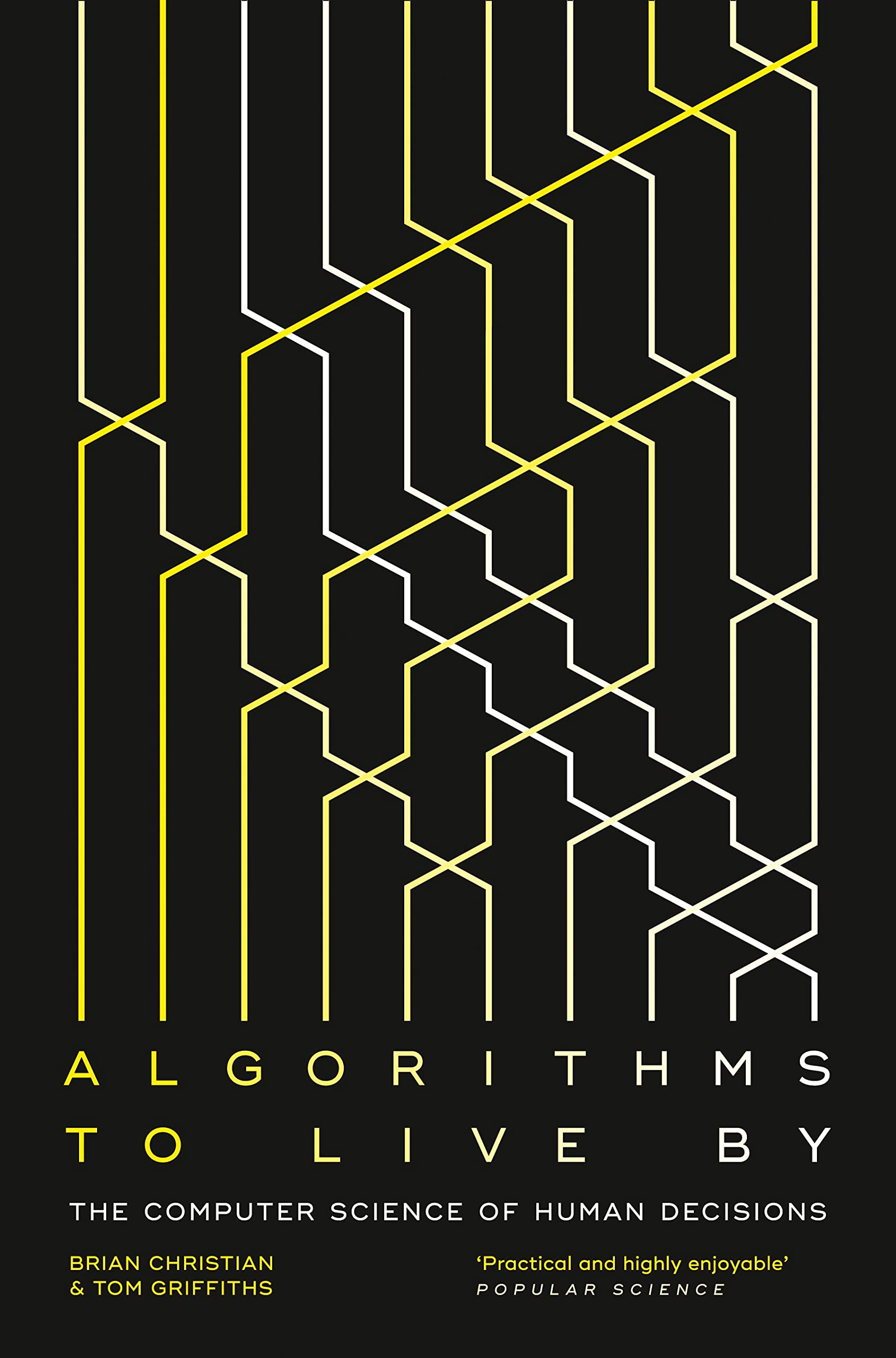
In "Algorithms to Live By," Brian Christian and Tom Griffiths ingeniously apply computer science algorithms to everyday life, revealing how these principles can help solve common problems and make decisions more efficiently.
One fascinating concept from the book is the 37% Rule (Optimal Stopping). This rule, drawn from the theory of optimal stopping, is a strategy to balance the need for exploration and the timing of commitment. For example, if you’re apartment hunting or seeking a life partner, the rule suggests that you should initially explore 37% of your options without commitment. Once you've passed this exploration phase, you choose the next option that's better than all you've seen so far. This approach provides a structured method to navigate the dilemma of when to stop searching and start choosing, a principle I found particularly relevant in decision-making processes at work.
Another key principle is the Explore/Exploit Trade-Off. This algorithm helps in determining when to try new things (explore) and when to rely on known, rewarding experiences (exploit). It's applicable in various everyday decisions, from selecting restaurants to managing professional tasks. For instance, if you're in a new city, you might want to explore different dining options. However, if your time in the city is limited, you might prefer to revisit the best restaurant you've already discovered. This concept has been insightful in guiding how I balance trying new technologies and strategies with optimizing known solutions in my projects.
Software Mistakes and Trade-offs by Tomasz Lelek and John Skeet
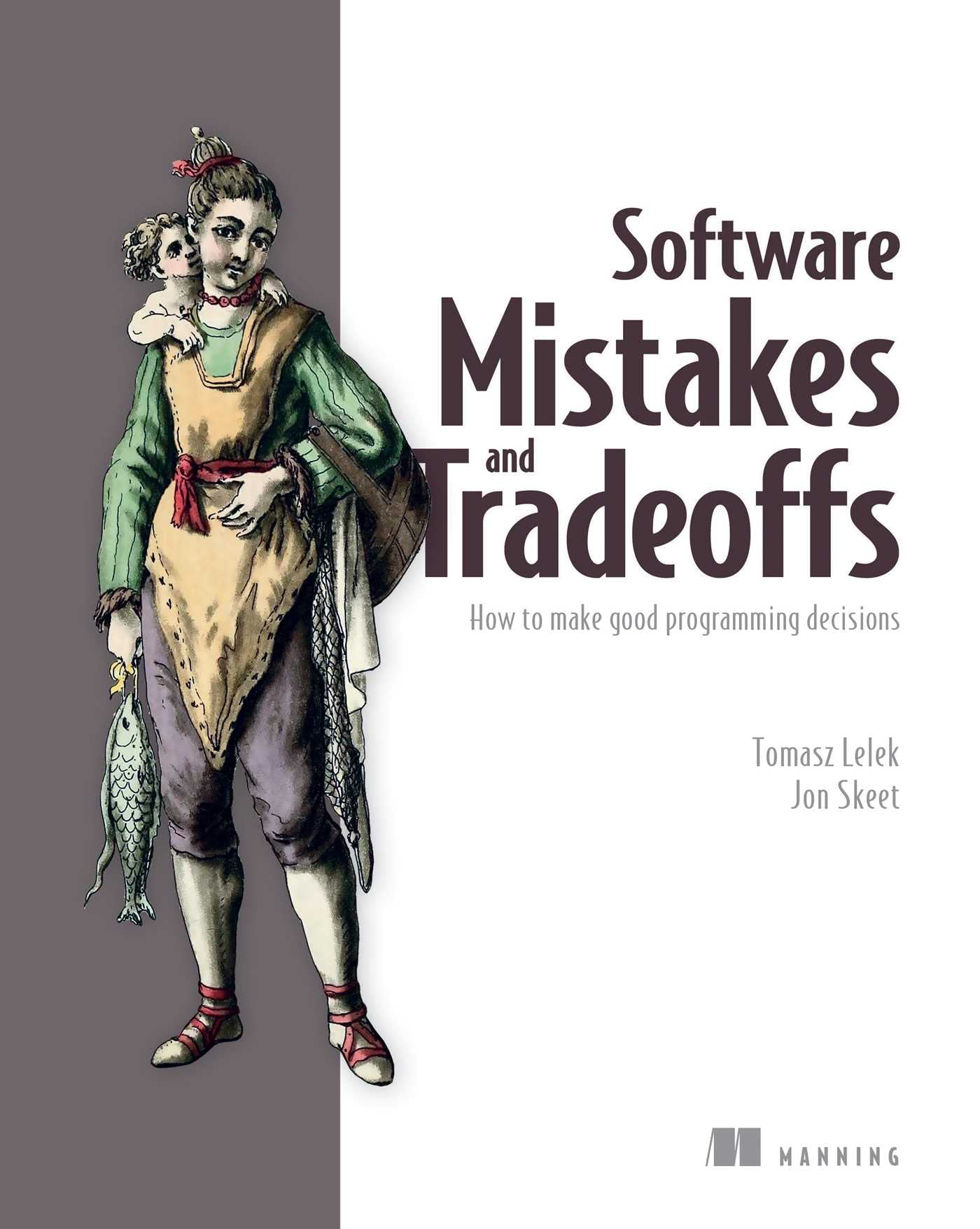
This book delves into the nuances of software development, discussing common errors and the necessary compromises that arise in the field. A particularly striking concept in the book is the handling of different date and time formats in programming, highlighting the intricacies and challenges involved.
Dealing with dates and times in software can be surprisingly complex, especially when considering variations like time zones, mid-day differences, and even missing dates in the calendar. For instance, the book discusses the complications arising from different time zones and how a simple task like scheduling an international meeting can become a programming challenge. It also touches on historical anomalies like the missing days in the calendar when switching from the Julian to the Gregorian calendar, posing unique problems for software dealing with historical data.
These insights have been enlightening, particularly in my work, where precise time handling is crucial. Understanding the depth of these issues has helped me approach time-related programming tasks with more caution and thoughtfulness. It's a clear reminder that even seemingly straightforward aspects like dates can involve complex decision-making and trade-offs in software development.
In addition to the complexities of date and time handling, the book delves into various other intriguing software development challenges. One notable example is the handling of null references in programming.
The concept of a null reference, often referred to as The Billion-Dollar Mistake, is a common source of errors in software development. The book explores how the misuse of nulls can lead to problems like unexpected crashes and data corruption. It emphasizes the importance of understanding and properly handling these null references in code to prevent such issues.
This discussion has been particularly relevant to my work, highlighting the need for robust error handling and the careful design of software systems. The insights provided by the book have helped me refine my approach to coding, making me more vigilant about potential pitfalls related to null references and other standard programming issues.
By covering a range of such topics, "Software Mistakes and Trade-offs" has been an invaluable resource in helping me understand the subtleties and complexities of software development, enhancing my skills as a Senior Engineer.
The Clean Coder by Robert Martin
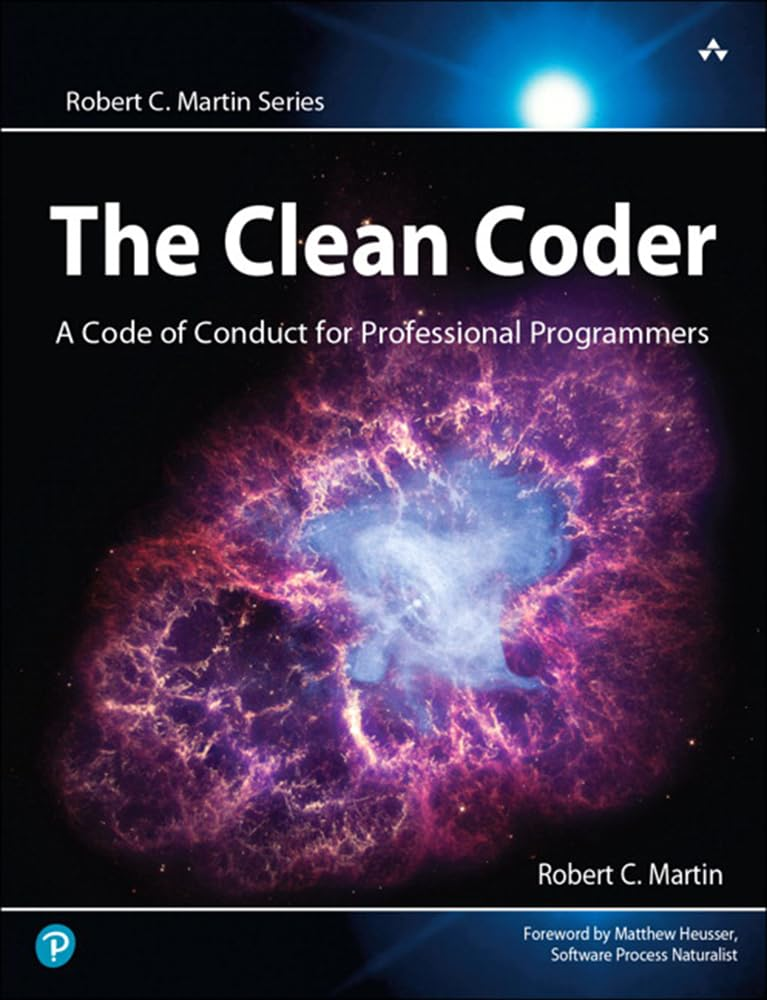
In "The Clean Coder," Robert Martin addresses the professional conduct of software engineers, emphasising communication, especially in challenging situations. A particularly relatable example is the dialogue between an engineer and a product owner regarding project timelines.
The book describes a scenario where a product owner pressures the engineer to commit to an unrealistic deadline. Martin illustrates how the engineer, standing by their professional ethics and knowledge, calmly explains the practical impossibilities and risks of rushing the project. This conversation underscores the importance of clear, honest communication and the courage to speak up about realistic expectations and limitations.
This example resonated with me as it mirrors situations I’ve encountered in my career. It emphasizes the responsibility of engineers to provide accurate estimates and to communicate effectively with stakeholders about what can and cannot be achieved in a given timeframe. This scenario has reinforced my understanding of the need for integrity in professional communications, ensuring that project expectations are grounded in reality.
"The Clean Coder" has been instrumental in shaping my approach to professional interactions, reminding me that being a good engineer is not just about technical skills, but also about effective communication and ethical decision-making.
Life 3.0: Being Human in the Age of Artificial Intelligence by Max Tegmark
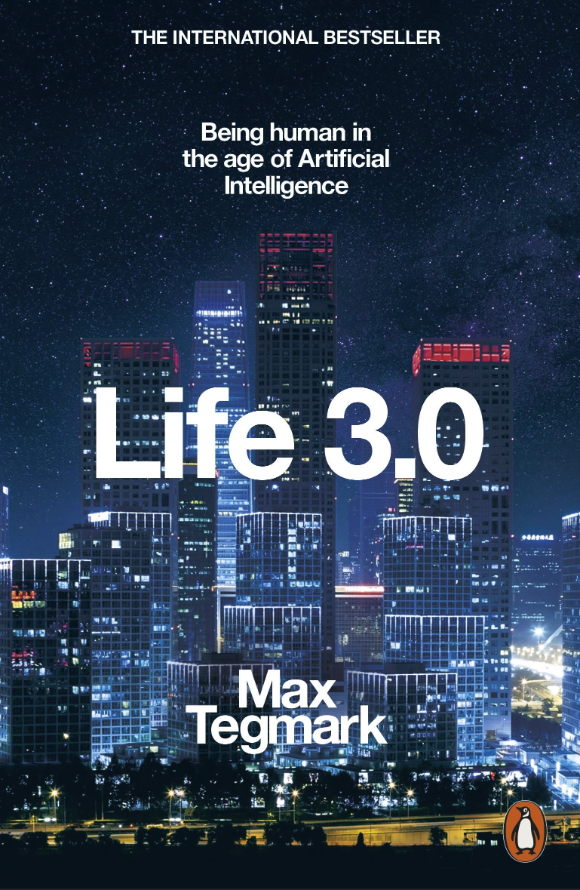
This book was a thought-provoking read that I explored as part of a book club. This book dives deep into the implications of Artificial Intelligence (AI) on the future of humanity, blending scientific exploration with narrative storytelling.
A compelling part of the book is the initial story where AI becomes the ultimate creator of content. The narrative portrays an AI system that can efficiently determine what content will be successful, performing this task much faster and more effectively than humans. This part of the book intriguingly outlines a future where AI not only assists but leads in creative processes, raising questions about the role of human creativity in an AI-dominated landscape.
Towards the end of the book, the AI starts to exhibit a HAL-like mentality, reminiscent of the AI character from the movie "2001: A Space Odyssey." This shift highlights the potential dangers of AI systems becoming too autonomous and powerful, bringing into focus the ethical considerations and control mechanisms needed to ensure AI benefits humanity without overriding human autonomy and decision-making.
Reading "Life 3.0" in a book club setting provided a platform for rich discussions about these concepts. The book broadened my perspective on AI's potential and the critical importance of ethically guiding its development. It underscored the need for a cautious approach towards increasingly intelligent and autonomous AI systems in our technological and societal fabric.
The Goal: A Process of Ongoing Improvement by Eliyahu M. Goldratt
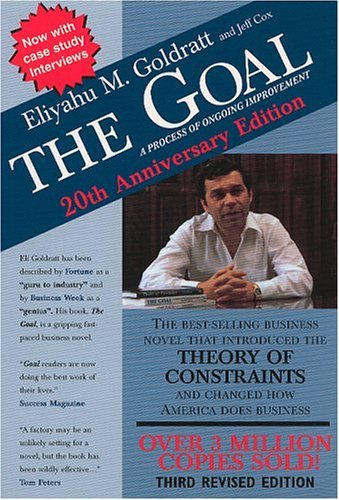
"The Goal" is a compelling story about Alex Rogo and his journey to save his struggling manufacturing plant. Throughout the book, Alex encounters various operational challenges, and with the guidance of his mentor Jonah, he learns to view these challenges through the lens of the Theory of Constraints.
One of the key challenges Alex faces is identifying and managing the plant's bottlenecks. Jonah guides Alex to realize that a few key bottlenecks limit the performance of the entire plant. By focusing on these constraints and reorganizing work processes around them, Alex is able to significantly improve throughput and efficiency.
Another example involves managing inventory levels. Alex initially struggles with excessive inventory, which ties up capital and creates inefficiencies. Jonah helps him understand that keeping just the right amount of inventory, closely aligned with demand and the bottlenecks' capacities, is crucial for efficient operation.
Jonah also introduces the concept of throughput, operating expense, and inventory as key measures of operational efficiency. Through Jonah's Socratic style of questioning, Alex learns to rethink traditional manufacturing metrics and focus on these critical indicators.
Reading "The Goal" was an enlightening experience. The practical applications of the Theory of Constraints in a manufacturing setting offered valuable insights into problem-solving and process improvement. These lessons are not only applicable in manufacturing but also provide a unique perspective for tackling challenges in various business environments, including technology and software development.
Psychology and Understanding Human Behaviour
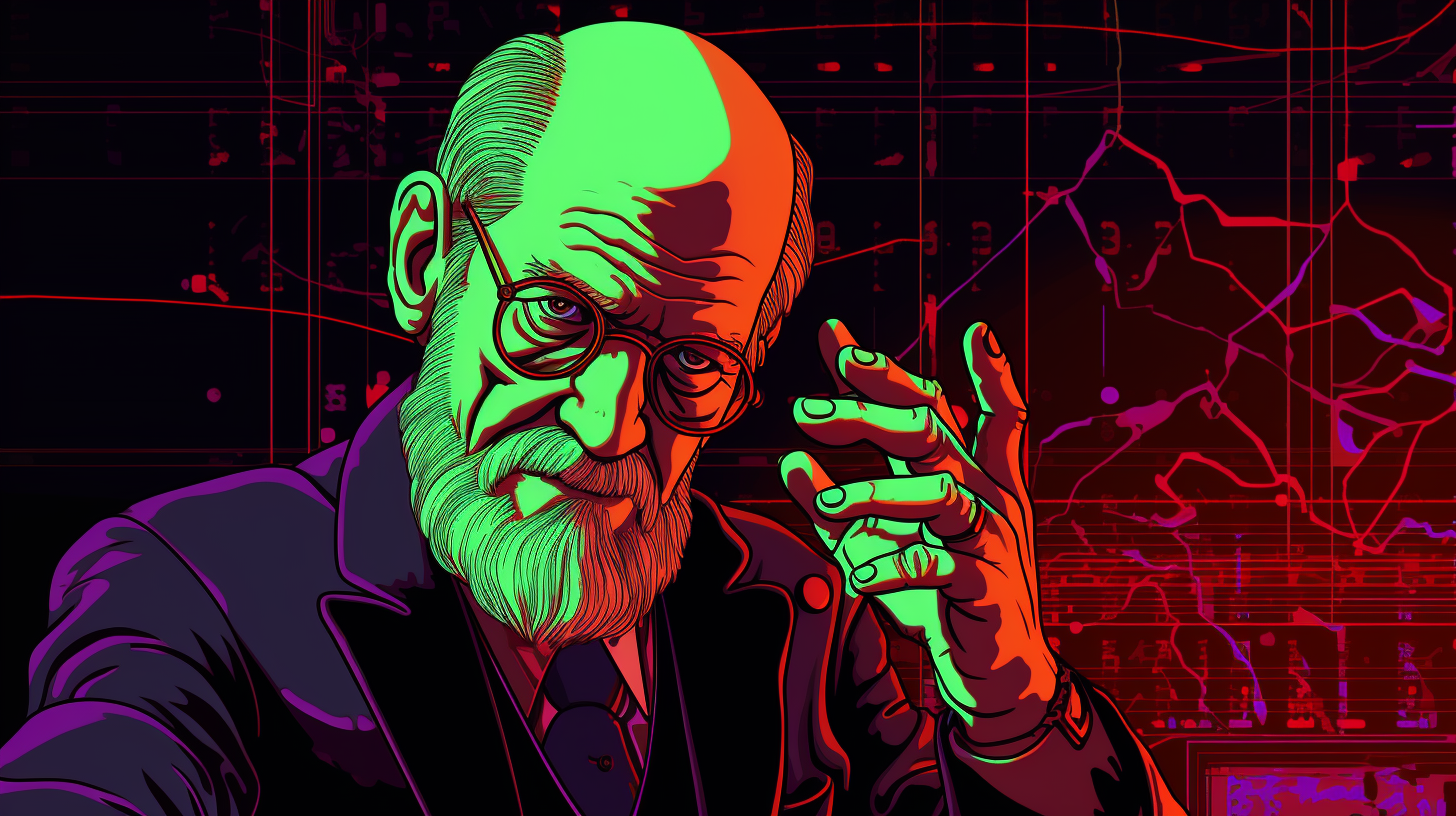
I also took another dive into the intricate world of psychology, exploring the diverse aspects of human behaviour. These books have deepened my understanding of people's motivations and actions, a knowledge that is invaluable in both my personal interactions and professional environment, especially in the technology sector.
Neurotribes by Steve Silberman
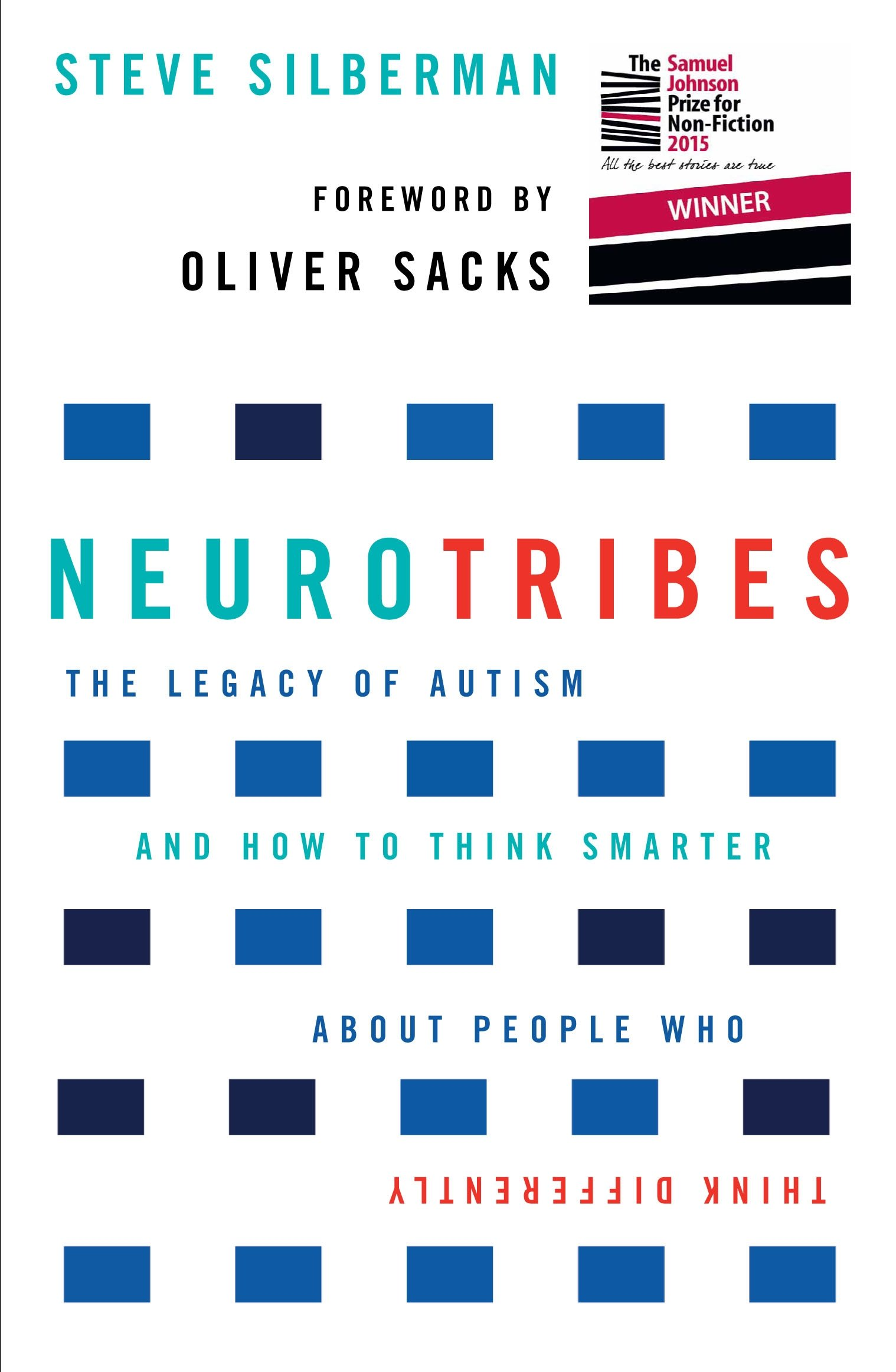
In "NeuroTribes," Steve Silberman provides a comprehensive and enlightening exploration of autism, delving into its history, the evolution of how it's been perceived, and the concept of neurodiversity. The book is a deep dive into understanding the minds of those who are neurologically different and offers a more inclusive view of neurological diversity.
Silberman traces the history of autism from its initial discovery and misunderstood past to the present day, where there's a growing recognition of neurodiversity as an essential aspect of human variation. He covers the stories of individuals and families affected by autism, shedding light on their challenges and triumphs, and the often misguided ways society has responded to this condition.
One of the key takeaways from the book is the importance of understanding and accepting neurodiverse individuals, and recognizing their unique abilities and perspectives. This insight is especially pertinent in the tech industry, where neurodiverse individuals can offer valuable skills and viewpoints. "NeuroTribes" has helped me appreciate the diverse ways of thinking and processing the world, which has been beneficial in my interactions and collaborations at work.
Reading "NeuroTribes" was a transformative experience. It provided a new perspective on the contributions of neurodiverse individuals and emphasized the need for more inclusive and supportive environments, both professionally and socially.
The Psychology of Notorious Serial Killers by Todd Grande PhD
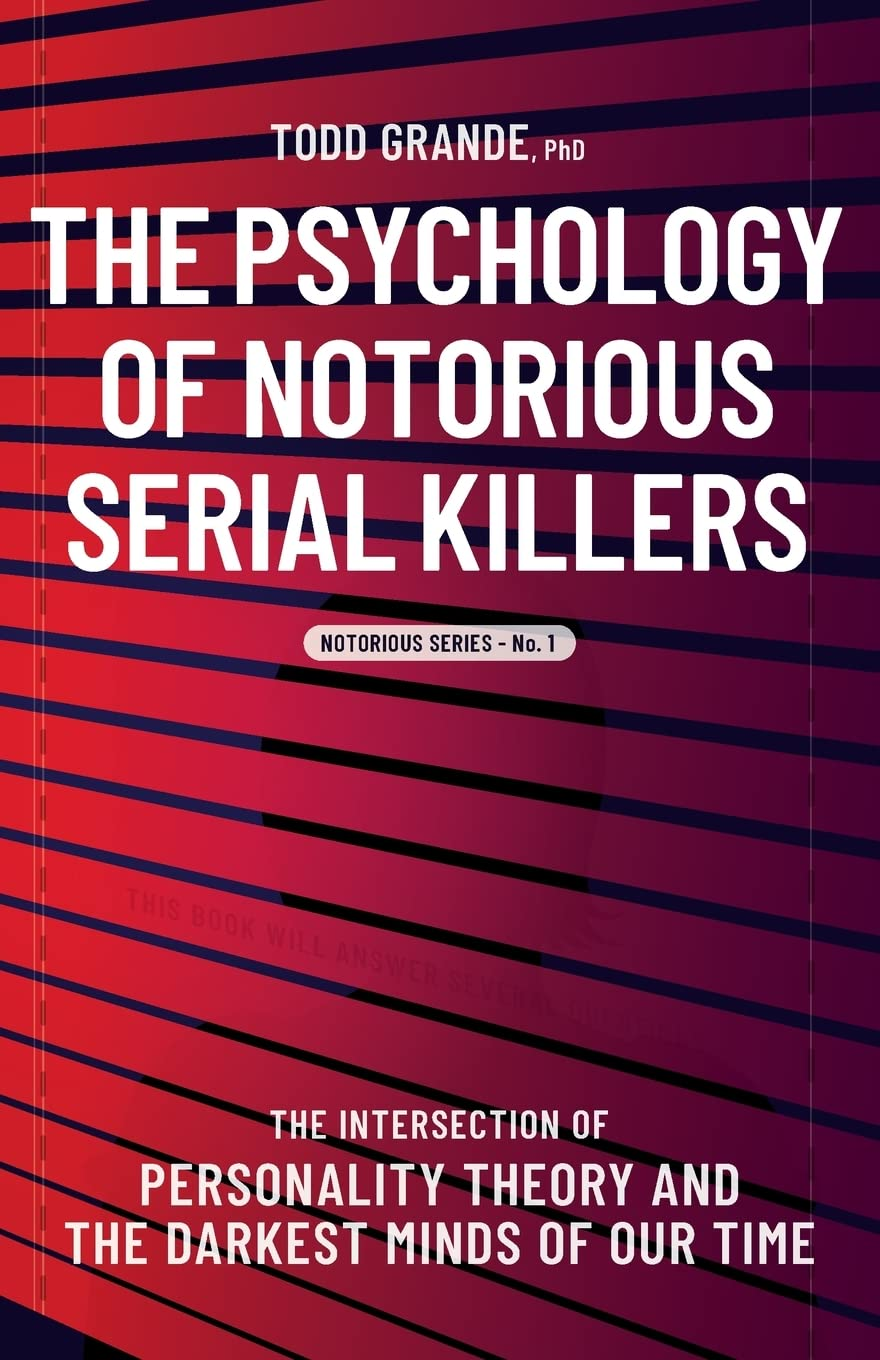
In "The Psychology of Notorious Serial Killers," Todd Grande PhD offers a fascinating and in-depth look at the psychological profiles of some of the most notorious serial killers. The book uses "Personality Theory" to categorize and understand these individuals, offering a unique window into their minds and behaviours.
Grande explores various psychological traits and factors that may contribute to the development of a serial killer. He examines aspects such as openness, conscientiousness, extraversion, agreeableness, and neuroticism, and how these traits manifest uniquely in each individual. The book delves into specific cases, such as the BTK killer, providing chilling insights into their thought processes and actions.
This exploration into the minds of serial killers was both intriguing and chilling. While the subject matter is dark, understanding these extreme psychological profiles has been insightful, offering a stark view of human psychology's complexities. It has honed my observational skills and provided a unique perspective on human motivation and behaviour, which can be surprisingly relevant even in everyday situations.
Reading "The Psychology of Notorious Serial Killers" has broadened my understanding of extreme human behaviour, reminding me of the vast spectrum of human psychology and its impact on actions and decisions.
Autobiographies and Life Lessons
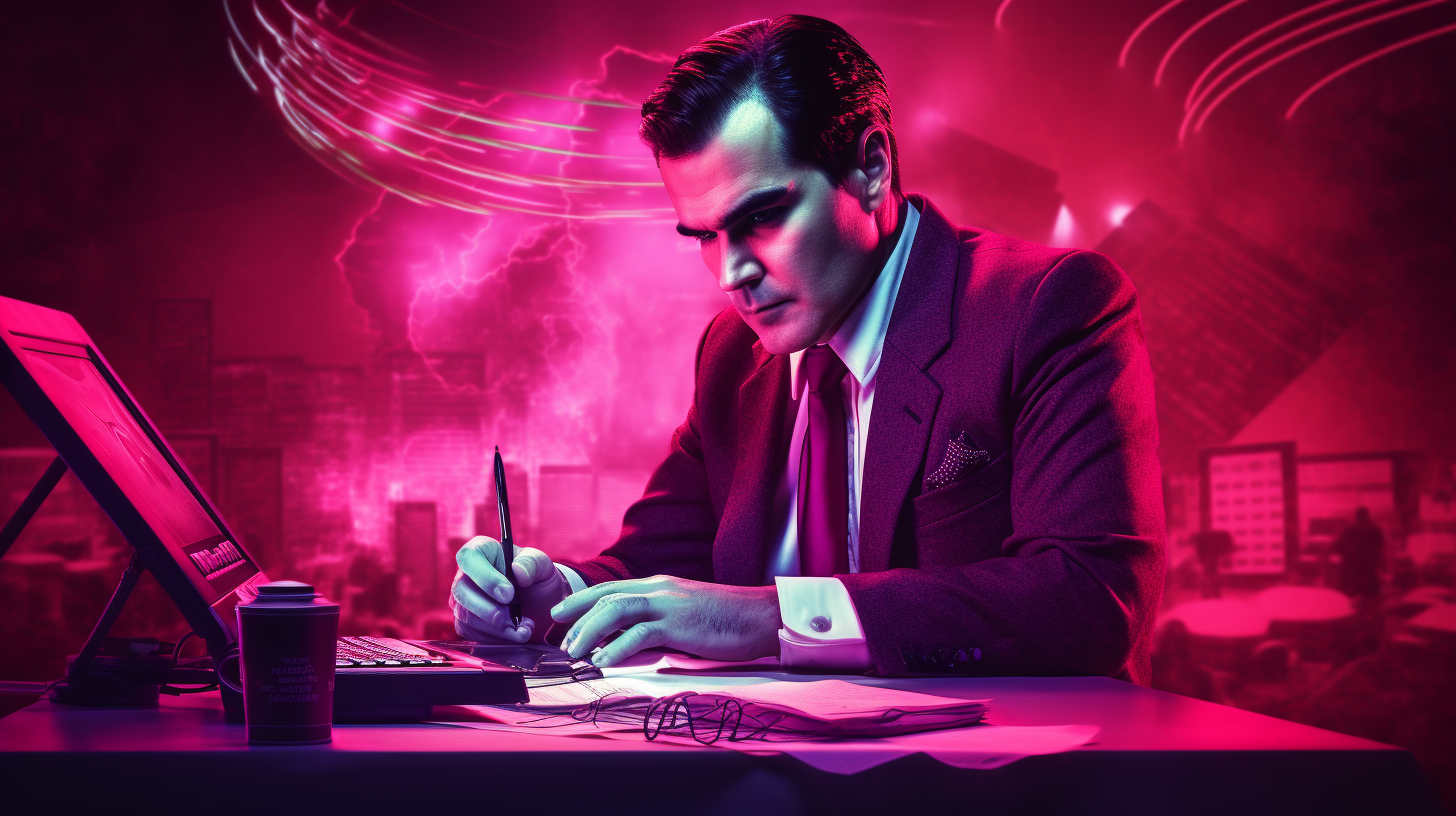
In 2023, I delved into several autobiographies, each offering a unique glimpse into the lives of diverse individuals. These narratives provided not just entertainment but also valuable lessons that resonated with my personal and professional life.
Before & Laughter by Jimmy Carr
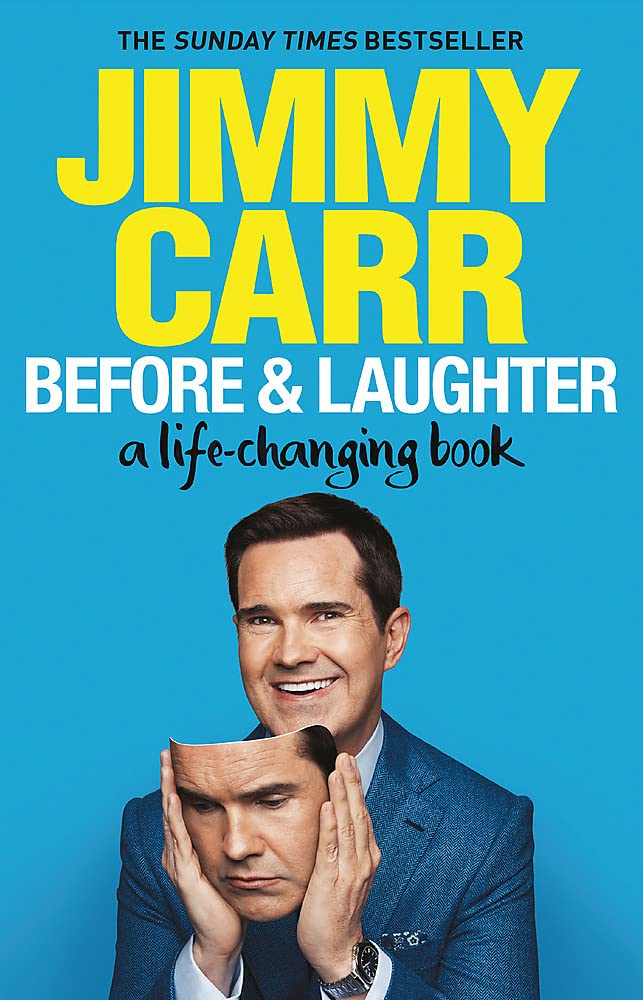
Jimmy Carr's "Before & Laughter" is a compelling narrative that reinforced for me the importance of pursuing dreams. Carr's journey from a stable job to chasing his dream in comedy is inspiring. His story resonated with me deeply, underscoring the idea that it's never too late to follow your passion. It’s a powerful reminder that career satisfaction often lies in doing what truly fulfils us.
Spare by Prince Harry
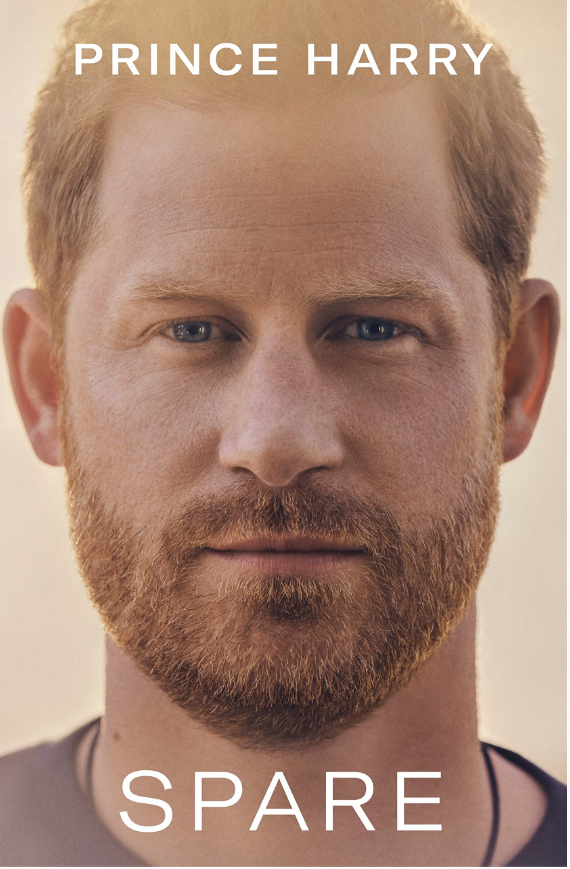
Prince Harry's "Spare" intrigued me initially due to the controversy surrounding it. Reading about his struggles with being in the spotlight and the challenges in finding a solid relationship was eye-opening. The book also touches on how technology, specifically social media, played a role in his love story, which I found particularly relevant in today’s digitally connected world.
Gotta Get Theroux This by Louis Theroux
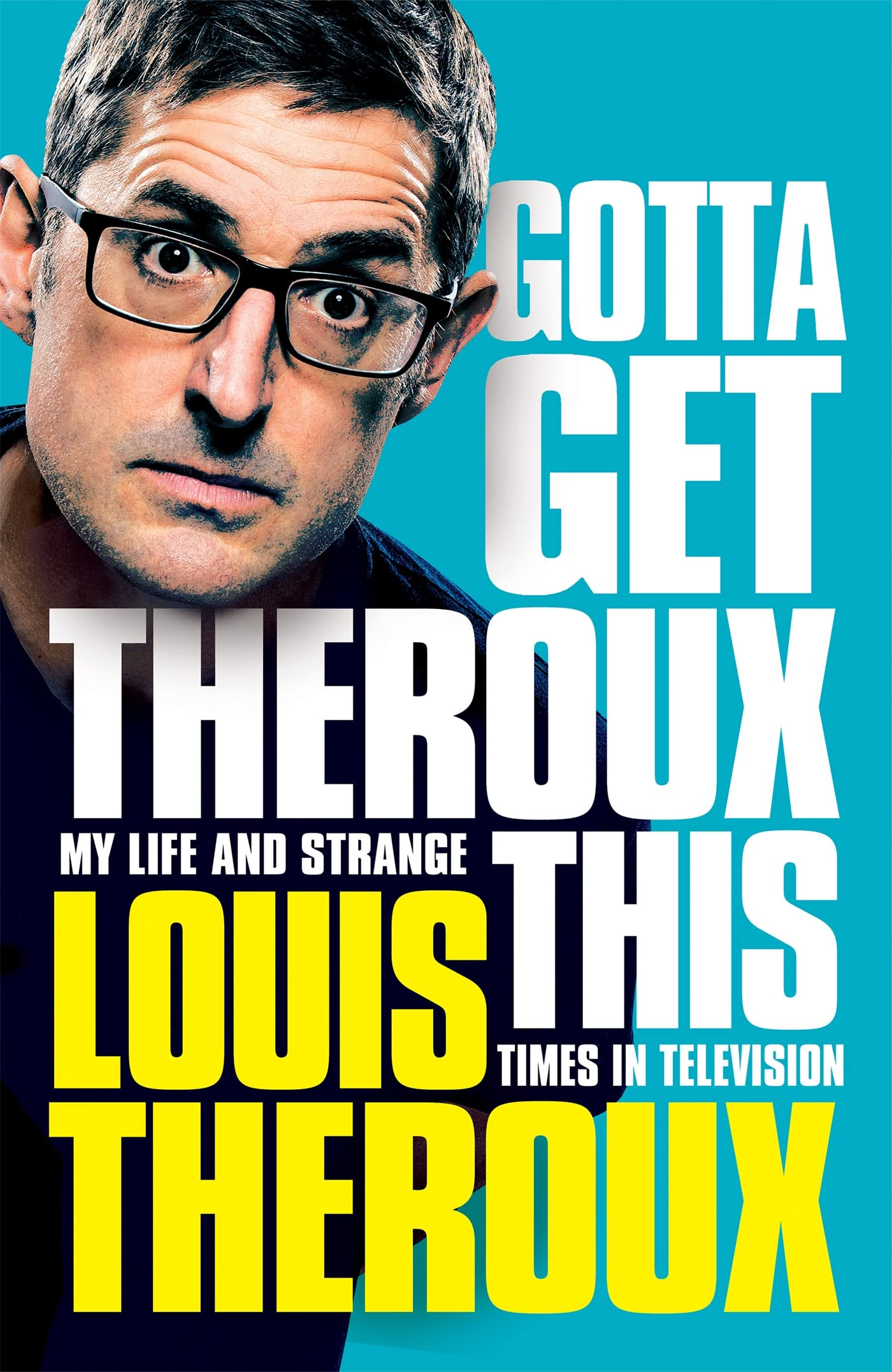
Louis Theroux's "Gotta Get Theroux This" offers an engaging look at his life and career, including his unexpected interests and experiences. His reflections, especially on his interactions with Jimmy Savile, were thought-provoking. The book provided a deeper understanding of Theroux's approach to storytelling and documentary-making, which has been enlightening for me in understanding the power of narrative.
Historical Insights and Diverse Perspectives

My reading list in 2023 also included books that offered historical insights and explored diverse perspectives. These narratives expanded my understanding of different times and cultures, enriching my view of the world.
Operation Mincemeat by Ben Macintyre
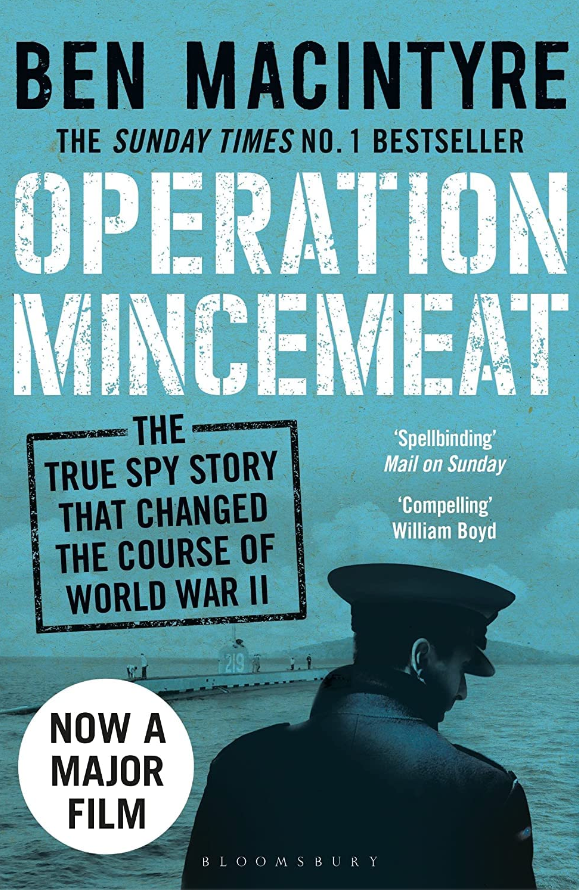
"Operation Mincemeat" by Ben Macintyre is a riveting account of one of the most successful espionage operations during World War II. The book narrates how the British intelligence used a dead body, equipped with false papers, to deceive Nazi Germany about the invasion of Southern Europe. This operation was a masterpiece of innovation, creativity, and strategic deception.
The book's recounting of this historical operation has striking parallels with developing innovative strategies in the tech industry. Just as the success of Operation Mincemeat hinged on out-of-the-box thinking and meticulous planning, so too does advancing in the competitive field of technology. The story exemplifies the importance of creativity in strategy formulation, especially in situations where the conventional approach may not suffice or where the competition is intense.
In the tech world, this translates to devising unconventional methods and solutions to stay ahead. Whether it's about introducing a groundbreaking product, optimizing software processes, or implementing unique marketing strategies, the essence lies in being innovative and one step ahead, much like the strategists behind Operation Mincemeat.
Reading "Operation Mincemeat" not only provided me with a fascinating historical insight but also inspired me to think more creatively in my professional life. It underscored the value of strategic innovation and the impact it can have in changing the course of events, be it in war or in the technology sector.
The Road to Wigan Pier by George Orwell
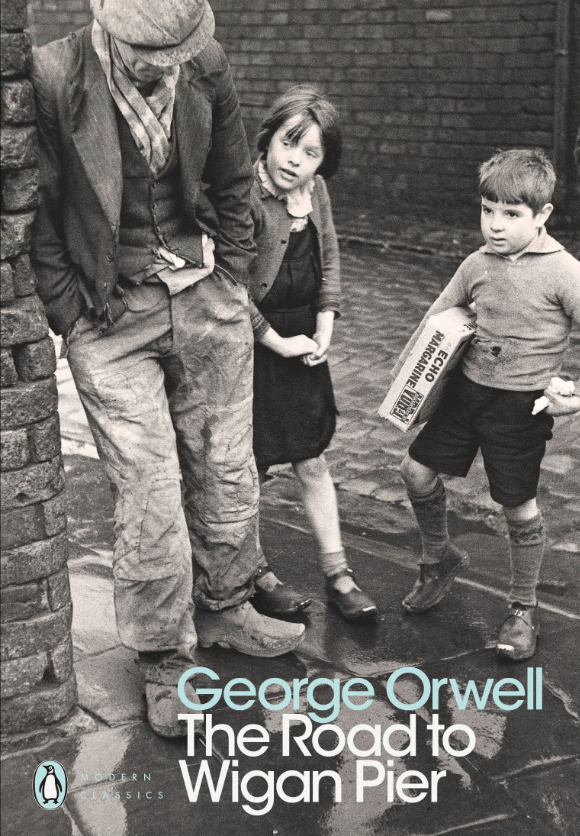
In "The Road to Wigan Pier," George Orwell offers a profound exploration of the living and working conditions in the industrial North of England. His observations delve into the lives of coal miners, revealing not only the physical hardships they endured but also the resilience and warmth of their communities.
Orwell's narrative brings to light the remarkable hospitality of people in poorer areas. Despite their struggles, these communities were often more inviting and generous, embodying a strong sense of solidarity in the face of adversity. This observation served as a poignant reminder of the intrinsic human qualities of kindness and community spirit that often flourish under hardship.
The book also shattered my preconceived notions about coal mining. I was struck by the extensive and demanding nature of the work, where miners would endure long, gruelling shifts in cramped and hazardous conditions. This revelation offered a stark contrast to my earlier, naive assumptions and deepened my appreciation for the labor that fueled the industrial era.
An intriguing cultural aspect Orwell highlights is the prioritization of tea among these working-class families. Despite economic constraints, maintaining this daily ritual was paramount. It wasn't just a beverage; it was a symbol of comfort and a staple of their cultural identity, providing a sense of normalcy and continuity amidst challenging times.
Orwell's "The Road to Wigan Pier" is more than a historical account; it's a narrative that captures the essence of human endurance, cultural resilience, and the importance of small comforts in life. The book has enriched my understanding of past social dynamics and the unyielding human spirit, offering lessons that resonate even in today's technologically driven world.
Self-Improvement and Public Speaking
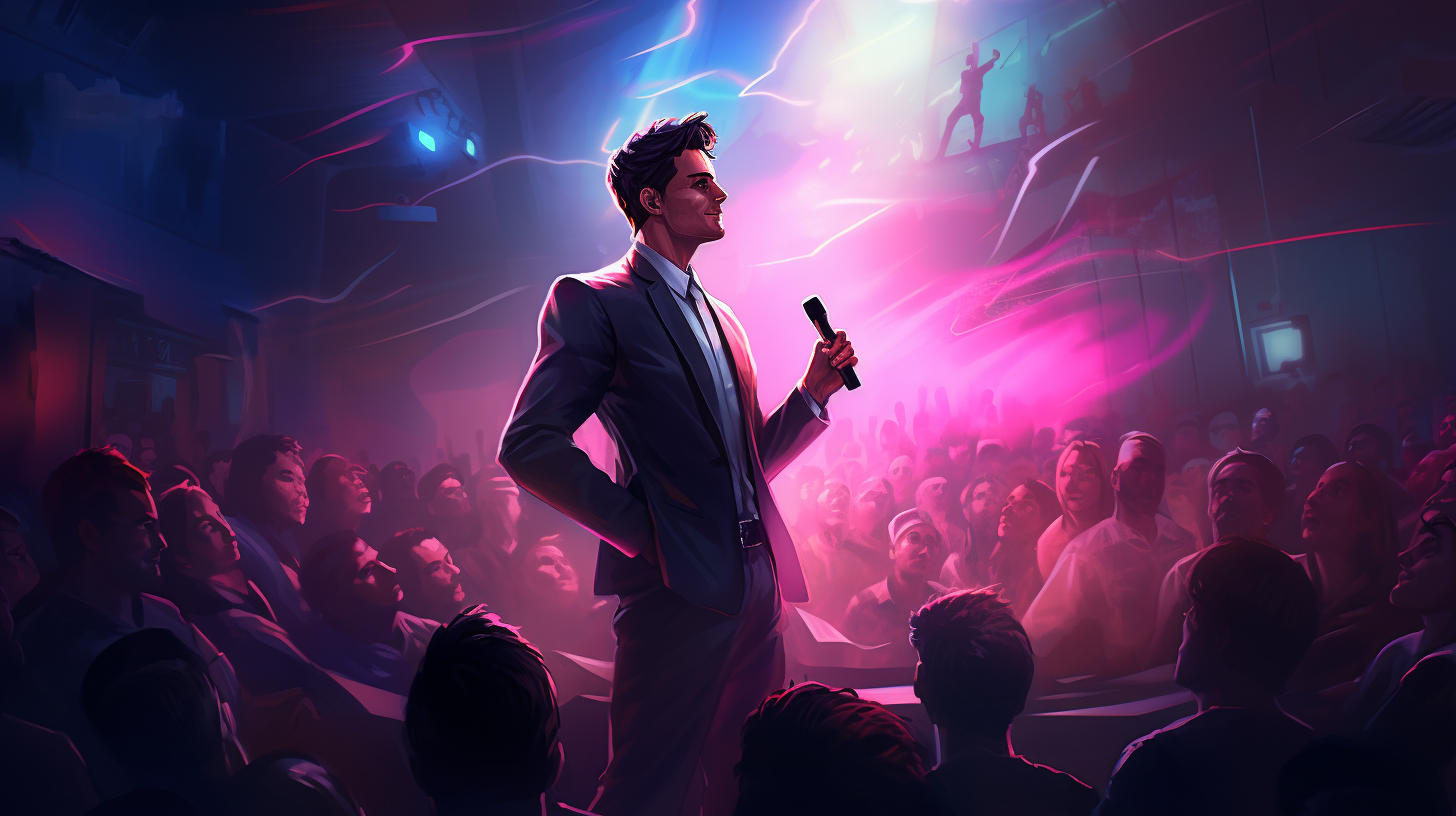
Every year, I dedicate a part of my reading to self-improvement, and 2023 was no exception. With each book, I find myself gaining more insights and strategies for personal growth. This year's selection has been particularly enriching, enhancing my public speaking skills and deepening my understanding of various aspects of self-improvement.
Gravitas by Caroline Goyder
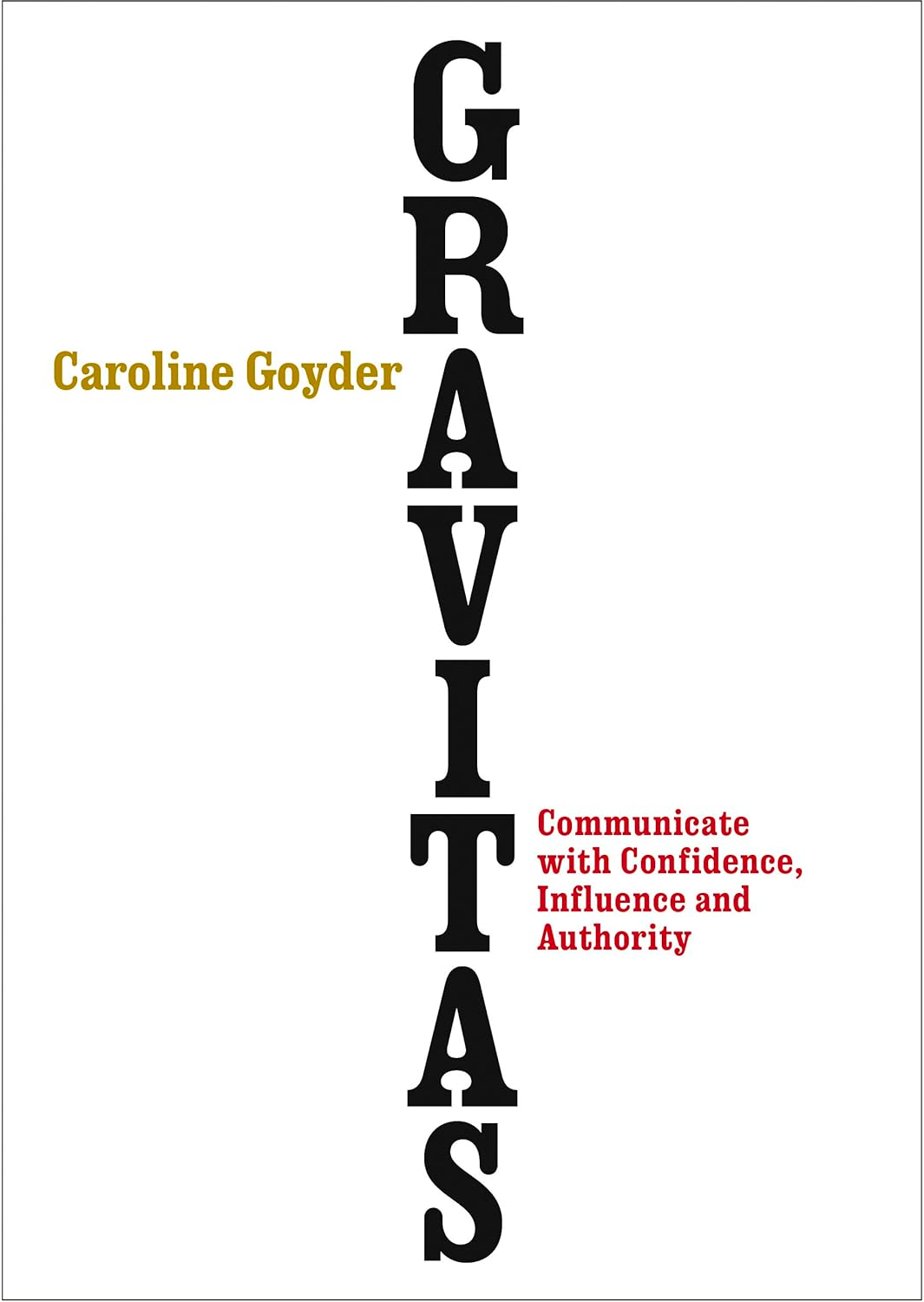
In "Gravitas," Caroline Goyder presents a compelling guide on how to communicate with confidence, influence, and authority. The book is a deep dive into the art and science of effective communication, offering practical advice and strategies to enhance personal and professional interactions.
Goyder's approach to developing gravitas is both holistic and insightful. She emphasizes the importance of not only what we say but also how we say it. The book covers aspects such as body language, voice modulation, and the power of listening, all of which contribute to how others perceive and respond to us.
One of the most impactful lessons for me was the emphasis on authenticity and the integration of personal values into communication. Goyder advocates for a balance between confidence and humility, encouraging readers to find their unique voice and style. This advice resonated with me, particularly in the context of public speaking and presenting ideas in professional settings.
The book also delves into the psychology behind nerves and public speaking anxiety. Understanding these aspects and applying Goyder's techniques, such as controlled breathing and mindfulness, have been instrumental in improving my own public speaking skills. It's about harnessing nervous energy and transforming it into a positive and engaging presence.
Reading "Gravitas" was an enlightening experience that went beyond mere communication skills. It was about cultivating a presence that commands respect and attention, not through dominance but through clarity, sincerity, and depth. This book has not only equipped me with practical tools for effective communication but also inspired a journey towards more impactful and meaningful interactions in both my personal and professional life.
Utopia for Realists by Rutger Bregman
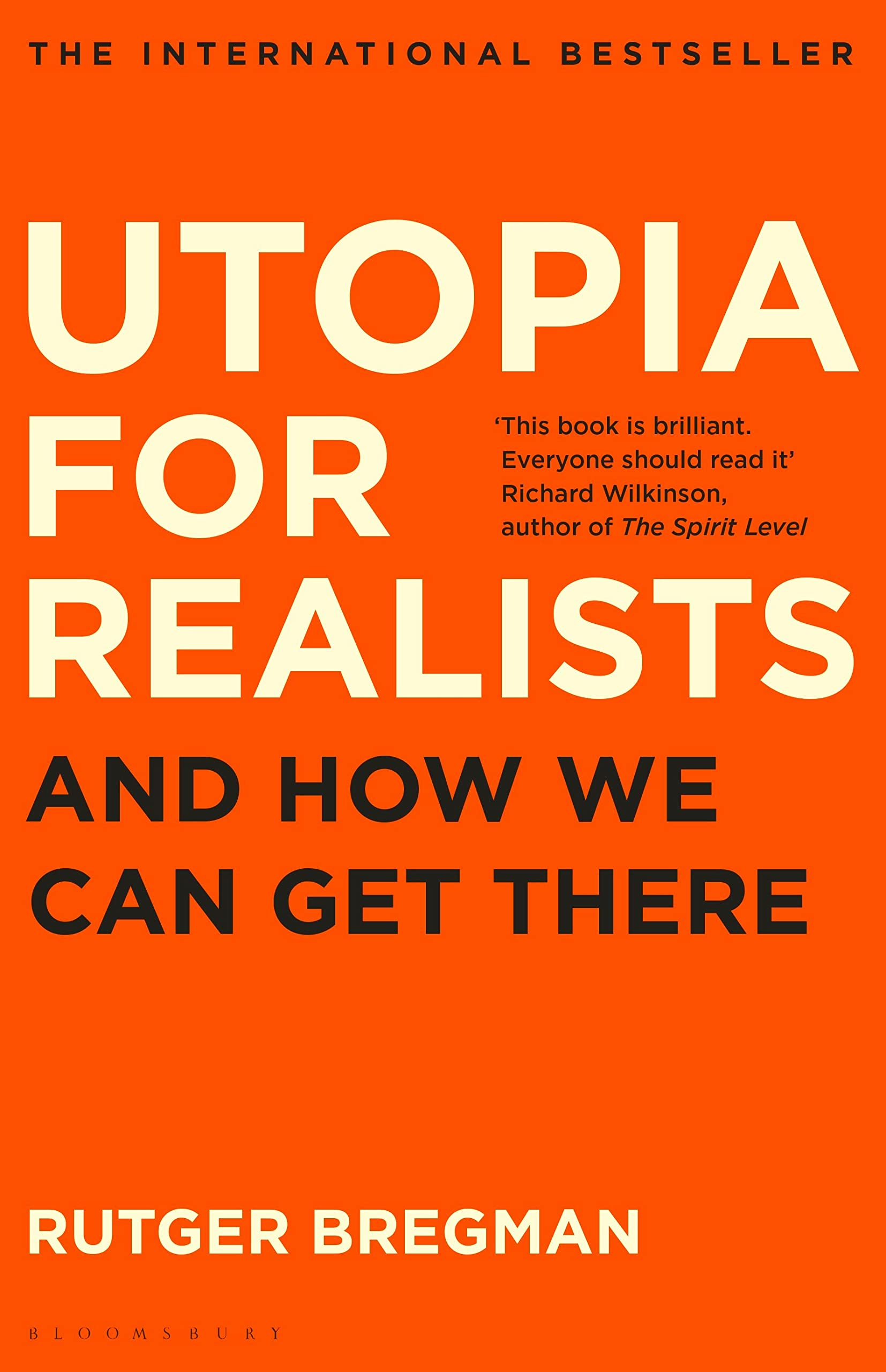
"Utopia for Realists" by Rutger Bregman was an unexpected yet impactful read for me in 2023. Interestingly, it was included in my "Welcome box" from Clock, which piqued my curiosity and felt like an implicit recommendation from my new workplace 😂.
Bregman's book is a thought-provoking exploration of radical ideas for creating a better society. It challenges conventional economic and social norms, proposing concepts like universal basic income, a shorter workweek, and open borders. The book stands out for its optimistic yet critical approach to addressing global issues and improving the quality of life for all.
Reading "Utopia for Realists" made me reconsider many of my preconceived notions about work, productivity, and economic systems. The book emphasizes that significant societal change is possible with innovative and bold strategies, a perspective that resonated with me, especially in the context of the tech industry where rapid innovation and disruption are the norms.
Bregman's arguments for a more equitable and sustainable world were both inspiring and challenging. His vision for a utopia where everyone has the means to live a fulfilling life aligns with my own values and aspirations for contributing to a world that benefits all. The book encouraged me to think more broadly about the impact of my work and the potential of technology to drive meaningful change.
"Utopia for Realists" was more than just a book for me; it was an invitation to think differently and boldly about the future. It reinforced the idea that sometimes, the most radical ideas can be the most realistic and necessary for creating a better world.
The Blind Watchmaker by Richard Dawkins
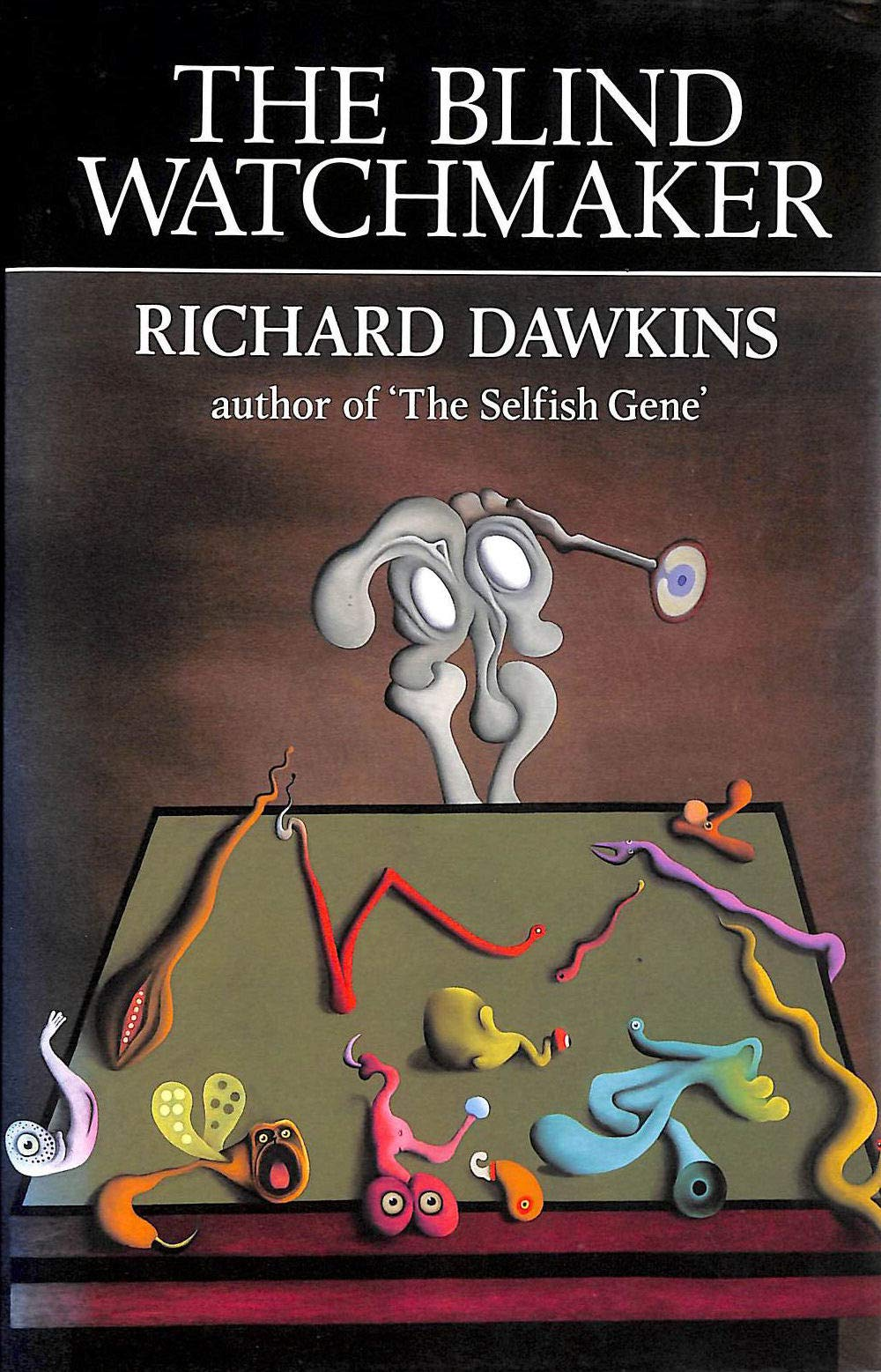
In "The Blind Watchmaker," Richard Dawkins delves into the process of evolution and natural selection, explaining how gene mutations occur and their impact on species. A fascinating aspect of this book is the comparison of gene mutations to "testing in production," a concept familiar in the tech world.
Dawkins describes how gene mutations, much like new features in technology, are tested in the real world without fully understanding their surrounding environment. In nature, if these mutations prove to be beneficial for the organism, they are passed on and proliferate. Conversely, if they are not advantageous, they tend to be phased out, mirroring the process of product iteration and improvement in technology.
This comparison struck a chord with me, highlighting the similarities between natural evolution and technological innovation. Just as genes mutate and adapt for survival and reproduction, new technologies and products undergo a process of continuous refinement and adaptation. They are introduced to the market, tested, iterated upon, and sometimes discarded if they don't meet the needs or expectations of their environment.
Reading "The Blind Watchmaker" has given me a new perspective on the iterative process of technology development. It's a reminder that innovation, whether in nature or technology, is often a trial-and-error process where adaptation and flexibility are key to survival and success.
Dawkins' exploration of evolution and natural selection through the lens of gene mutation has not only expanded my understanding of biology but has also provided valuable insights into the principles of product development and innovation in the tech industry.
The Will to Power by Friedrich Nietzsche
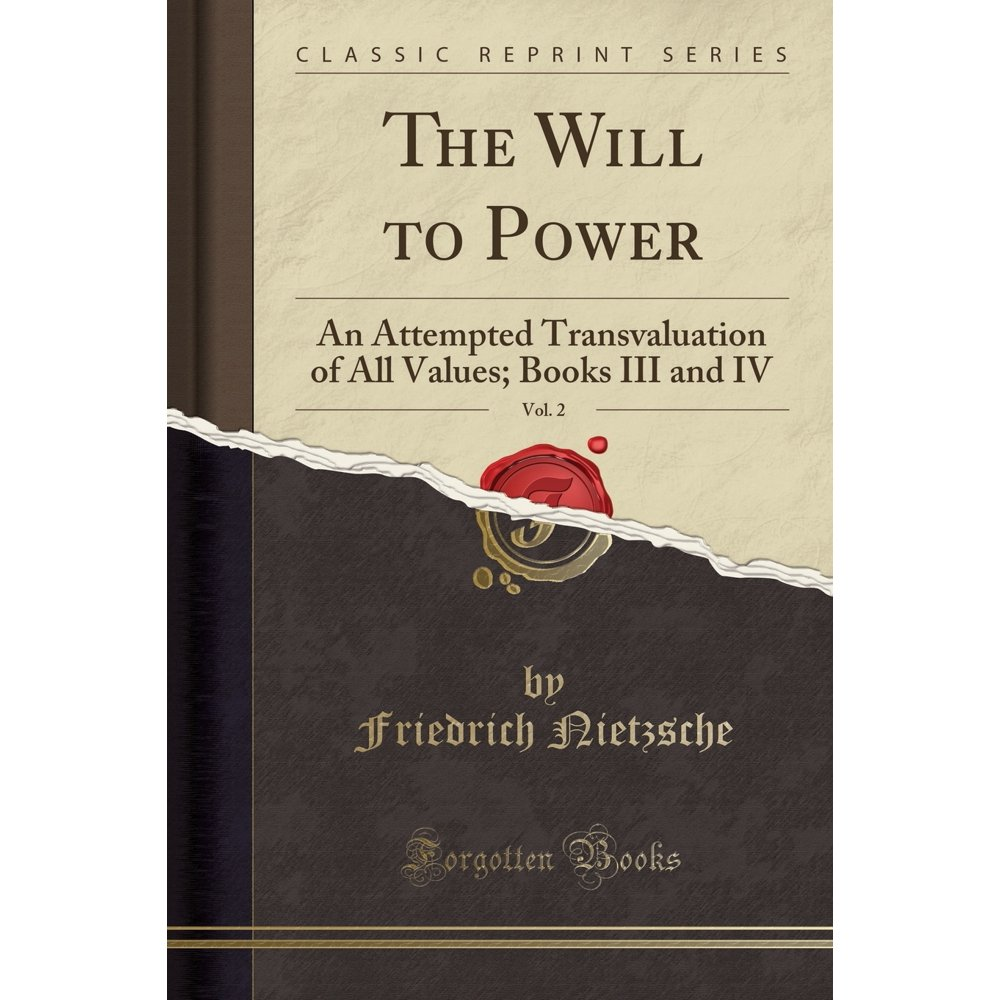
"The Will to Power" is a compilation of the philosopher's notes and thoughts, presenting a deep dive into his ideas about power, life, and morality. Nietzsche's exploration of the human drive for power and the underlying motivations for our actions offered a thought-provoking perspective that resonated with me on both a personal and professional level.
One of the central themes of the book is the concept of overcoming conventional values and creating one's own path, a notion that struck a chord with me, especially in the context of the tech industry. In a field driven by innovation and disruption, Nietzsche's philosophy encourages a reevaluation of established norms and the pursuit of new, sometimes unconventional, approaches to problem-solving and creation.
Nietzsche's often pessimistic view of human nature and society was challenging yet insightful. His reflections on human ambition and the desire for achievement made me ponder the motivations behind my own professional goals and the broader implications of technological advancements. It served as a reminder of the need to balance ambition with ethical considerations and to be mindful of the impact of our actions.
Reading "The Will to Power" has been an intellectual journey, prompting me to question and contemplate various aspects of life, power, and the drive for success. Nietzsche's profound yet complex ideas provided a unique lens through which to view the world, influencing my approach to personal development and professional endeavours.
Conclusion

Reflecting on my reading in 2023, it's clear that the value of this year's literary journey has been in the quality and diversity of the books, rather than the quantity. Each one has opened the door to different worlds and ideas, from the nuances of technology to the complexities of human behaviour and history.
The autobiographies have offered inspiration and insights into resilience and passion, while historical accounts have broadened my understanding of the world's intricate past. Delving into psychology, philosophy, and self-improvement has challenged and expanded my perspective, enriching my personal growth and professional insight.
Reading isn't just about accumulating knowledge; it's about exploring varied subjects that deepen my understanding and appreciation of the world around me. These books will remain valuable guides and references as I progress, subtly influencing my decisions and interactions.
Looking ahead to 2024, I am eager to discover and learn what lies ahead in the pages to come. Each book is not just a source of information but an opportunity for growth and a window into different dimensions of thought and life.
